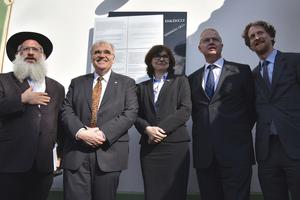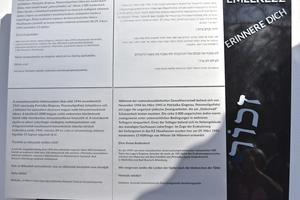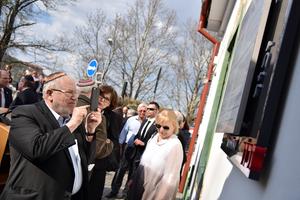Hungarian Jews who suffered or died at the Engerau labour camp under the Nazi regime on the territory of Bratislava’s borough of Petržalka now have their own commemorative site. Slovak, Austrian and Hungarian Justice Ministers, Lucia Žitňanská, Wolfgang Brandstetter and László Trócsányi, respectively, ceremonially unveiled a commemorative plaque there on March 29.
The plaque has been placed on the wall of the Leberfinger restaurant. One of the six subcamps of the labour camp designed for Hungarian Jews was located in this building between December 1944 and March 1945. Over 1,700 prisoners were imprisoned in inhuman conditions in the camp.
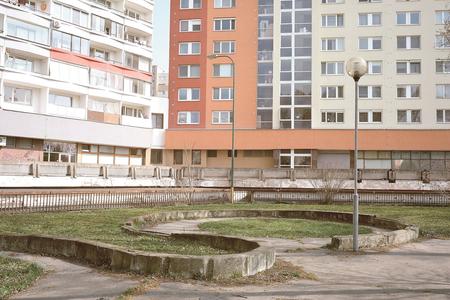
Following the Munich Agreement in 1938, Petržalka or Engerau in German, then only a small village, was annexed by Nazi Germany.
“Seventy-two years have passed since the day on which the camp was evacuated and prisoners were moved to Bad Deutsch-Altenburg [in modern-day Austria],” said Žitňanská as cited by the TASR newswire. “Dozens of prisoners were shot dead during the march, while additional ones were murdered even before that. Austrian guards murdered at least 13 prisoners directly on the Leberfinger subcamp’s courtyard.
An innocent-looking tavern on this site was turned into a death camp where innocent people were tortured and murdered, said Israeli consul Avital Gershon during the ceremony.
All three ministers concurred that the plaque will serve not only as a commemoration but also remind contemporary and future generations of the fascist past.
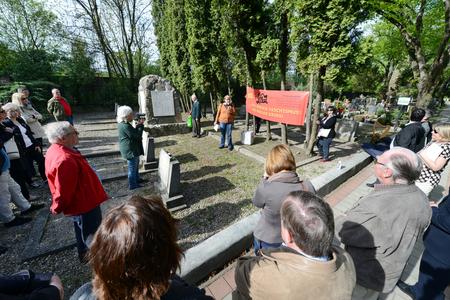
During their meeting, the politicians discussed how to do more in order to prevent the further spread of extremism and radicalism.
“It’s very difficult to talk about the fate of people at a time when a human life had no value,” said Žitňanská. “However, it’s our duty to speak about them now when the whole of Europe faces growing radicalisation and extremism.”



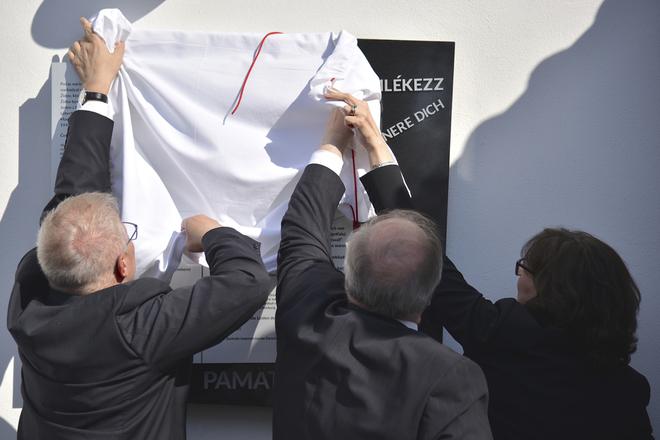 Unveiling of the commemorative plaque. (source: TASR)
Unveiling of the commemorative plaque. (source: TASR)
